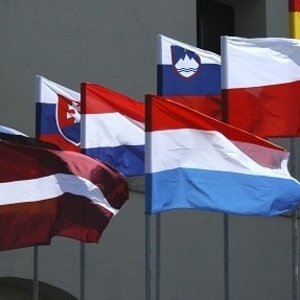EU vote stalls 6 percent cap on 1st generation biofuels

October 18, 2013
BY The European Biodiesel Board
The European Biodiesel Board, representing the main advanced and conventional biofuels industry in Europe, takes good note of the European Parliament’s environment committee (ENVI) vote stopping a new attempt to come to hasty, emotional decisions on the indirect land-use change (ILUC) file.
This vote comes as a result of growing concerns over emotionally pushed attempts to move an EU ILUC ruling forward. Months of excessive pressures to hurry up crucial decisions on EU industrial policy generated an opposite effect and the ENVI majority that supported Corinne Lepage’s report last July in ENVI has disappeared. “After the publication of up-to-date authoritative studies on ILUC, a widening range of decision makers supports a more prudent and open-minded approach,” said Raffaello Garofalo, secretary general of the European Biodiesel Board. “Even members of parliament close to Lepage realized that early second reading would not have provided sufficient time to assess the relevance of science used in policy,” he continued.
Recent scientific inputs have shown that further investment in research on ILUC modeling, elasticity and data is needed. By correcting yield assumptions, based on the United Nation’s Food and Agriculture Organization (FAO) historical trends and forecasts, the French institute on Agricultural research (INRA) concluded that ILUC factors for biodiesel would amount to around 10gCO2eq/MJ. This represents an 80 percent decrease compared to the fatal 55 grams set by the highly contested International Food Policy Research Institute (IFPRI) findings and set in the current proposal. A Global Trade Analysis Project study performed by a U.S. scientific team of experts further estimated ILUC values to 2 grams due to accurate analysis of land conversion. Even the International Organization for Standardization (ISO) representatives are raising important doubts on legislative ruling based on ILUC modeling results, which show a room for incertitude of 300 percent among various studies.
Advertisement
EBB defends the interest of both the largest EU producers of advanced and conventional biodiesel. Our common wish is that this vote will open a new season where EU green industrial policy will not be subject to sudden U-turns based on emotional fears. We need to rethink ILUC and EU biofuels policy in a genuine international perspective, looking to U.S. and Brazilian approaches and to ISO indications. A mature and open confrontation on the real facts about ILUC will provide much more certainty to investors than last-minute attempts to get to hasty decisions.
Advertisement
Related Stories
Sen. Roger Marshall, R-Kan., and Rep. Marcy Kaptur, D-Iowa, on April 10 reintroduced legislation to extend the 45Z clean fuel production credit and limit eligibility for the credit to renewable fuels made from domestically sourced feedstocks.
Representatives of the U.S. biofuels industry on April 10 submitted comments to the U.S. Department of Treasury and IRFS providing recommendations on how to best implement upcoming 45Z clean fuel production credit regulations.
Lawmakers in Wisconsin on April 3 announced their intent to introduce legislation that would create a $1.50 per gallon production tax credit for SAF. The bill is currently circulating for co-sponsorship support and will be formally introduced soon.
A group of 16 senators, led by Sens. Chuck Grassley, R-Iowa, and Amy Klobuchar, D-Minn., on April 8 sent a letter to U.S. EPA Administrator Lee Zeldin urging the agency to increase RVO and account for SREs in the agency’s upcoming RFS rulemaking.
A group of small refineries on April 4 sent a letter to President Donald Trump urging him “to sent the multi-national oil and biofuels companies back to the drawing board to come up with a biofuels policy that does no harm.”
Upcoming Events










